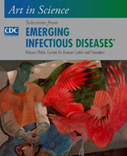In Western Tanzania tribes of wandering foragers called Hadza eat a diet of roots, berries, and game. According to a new study, their guts are home to a microbial community unlike anything that's been seen before in a modern human population -- providing, perhaps, a snapshot of what the human gut microbiome looked like before our ancestors figured out how to farm about 12,000 years ago.
Research and publish the best content.
Get Started for FREE
Sign up with Facebook Sign up with X
I don't have a Facebook or a X account
Already have an account: Login
A few things the Symbol Research team are reading. Complex Insight is curated by Phillip Trotter (www.linkedin.com/in/phillip-trotter) from Symbol Research
Curated by
Phillip Trotter
 Your new post is loading... Your new post is loading...
 Your new post is loading... Your new post is loading...
|
|












